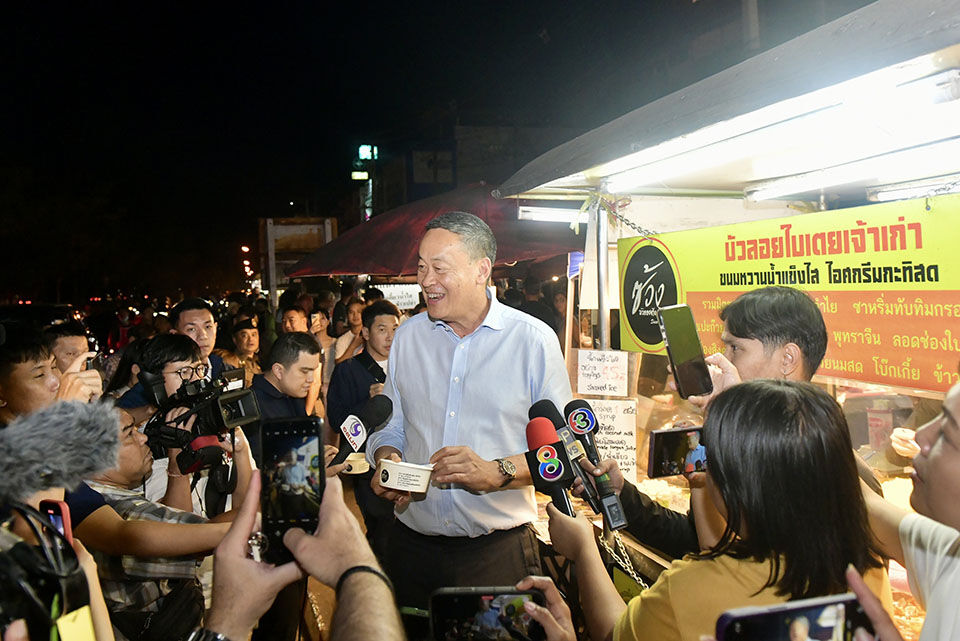PM Srettha visits Chiang Mai street food market in soft power move

Prime Minister Srettha Thavisin set the stage for Thailand’s unique foray into soft power, blending strategic attractions such as pigeon racing and Muay Thai.
PM Srettha, on a visit to Chiang Mai, didn’t just stick to the official script but delved into progressive discussions that could reshape the nation’s global influence.
Taking a casual stroll through Chiang Mai’s famed street food area, the prime minister engaged in discussions with Jatuporn Burutpat, Permanent Secretary of the Ministry of Natural Resources and Environment, and even exchanged ideas with Buakaw Banchamek, the renowned Thai kickboxer.
In a revelation that left many jaws dropped, the PM-cum-finance minister shared that he is considering incorporating pigeon racing competitions into Thailand’s soft power initiatives. The unexpected twist in diplomatic strategies took everyone by surprise, opening up a new dimension to the nation’s international image.
The 61 year old Thai prime minister didn’t stop there. Meeting Buakaw in Chiang Mai, discussions veered towards elevating the status of Muay Thai as a potent element of Thailand’s soft power arsenal. The Bangkok-born PM entertained various suggestions, hinting at a potential rebranding of Thai boxing on the global stage, reported Pattaya Mail.
But it wasn’t all policy and strategy, the prime minister showcased his people-centric approach by visiting the bustling Chang Puak street food market. Amid greetings to locals and tourists alike, PM Srettha expressed his delight at the market visit – a habit he maintains, proving that he remains connected to the people even after assuming office.
In related news, the Thai PM pledged to foster the development of electric mass transit systems as a solution to the persistent air pollution issues plaguing the northern province. PM Srettha noted that the fine particulate matter smaller than PM2.5 levels had considerably decreased since his last visit on November 28 last year.
The air quality has improved since April last year when the Geo-Informatics and Space Technology Development Agency detected 302 hotspots, escalating the situation to a critical level.
Latest Thailand News
Follow The Thaiger on Google News:


























